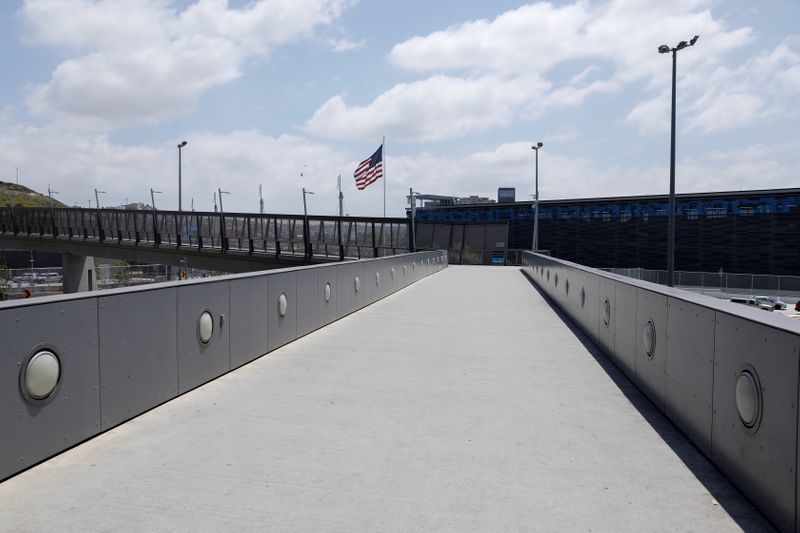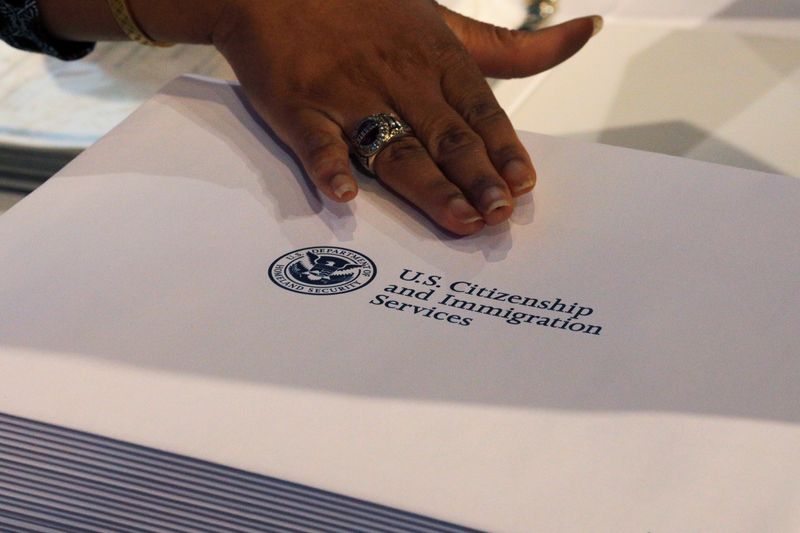By Mica Rosenberg and Mimi Dwyer
NEW YORK (Reuters) - The U.S. agency in charge of processing immigration applications said on Wednesday it was preparing to furlough nearly 70% of its workforce unless it received fresh funding, a move employees say could bring an already backlogged system to a virtual halt.
U.S. Citizenship and Immigration Services (USCIS) is dependent on fees from new immigration applications for its operations and is facing a historic budget shortfall.
Republican President Donald Trump has made cutting legal and illegal immigration a centerpiece of his 2020 re-election campaign. New regulations and a series of executive actions, along with travel restrictions put in place in response to the coronavirus pandemic, have dramatically reduced the number of immigrants coming to the United States.
A USCIS spokesperson said in a statement that the agency has already seen a 50% drop in fees since March when most travel and immigration stopped as countries moved to control the spread of coronavirus. USCIS has asked for a $1.2 billion bailout from Congress to avoid the projected staff reductions.
"On or before July 2, approximately 13,400 USCIS employees will receive notice that if USCIS must proceed with an administrative furlough, they would be furloughed beginning August 3," the USCIS spokesperson's statement said.
The furloughs, if implemented, "will for sure cause noticeable delays immediately," said one USCIS employee who asked not to be named because they were not authorized to speak on the record. "There are already so many backlogs to work through. It's insane to even contemplate how bad this is going to get."
The staff of the Refugee, Asylum and International Operations division of USCIS was informed in an email seen by Reuters that notices were being sent on July 24 and 25 to approximately 1,500 employees of the 2,200 on staff in that unit. Those kept on would be a "skeleton crew" to "keep the lights on," the email said.

On Monday, Trump signed a presidential proclamation banning entry for several categories of temporary visa holders and extended a ban on some green card applicants, which the administration said would help open more jobs for unemployed Americans. Critics say the measures will hurt the economy.
